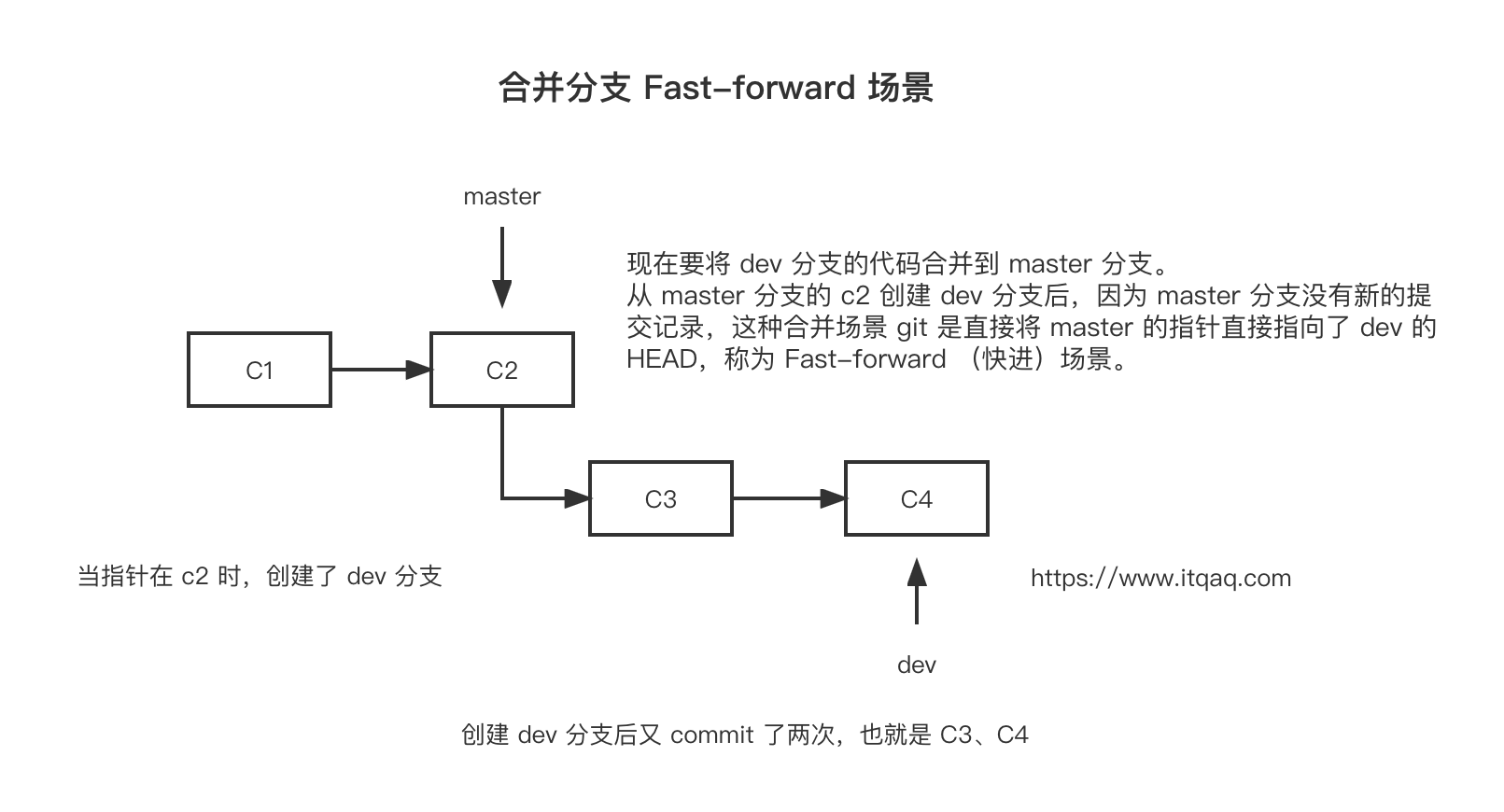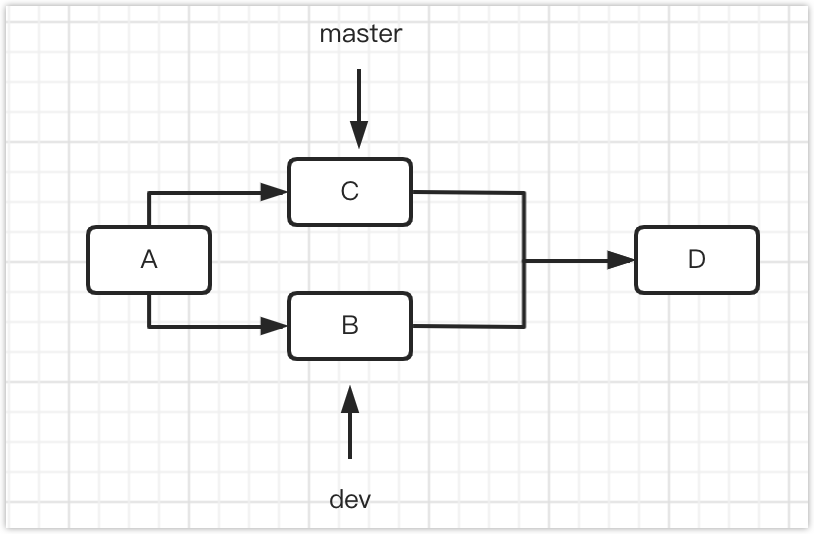git merge命令之Fast-forward(快速合并)和 three way merge(三路合并)
- 前言
- 合并场景之 Fast-forward(快速合并)
- 合并场景之 three way merge(三路合并之正常合并)
- 合并场景之 three way merge(三路合并之冲突合并)
- 中止合并
1.前言
将指定分支合并到当前分支
git merge <branch>如果当前指针指向的是 master 分支,那么下面代码就是将 dev 分支合并到 master 分支
git merge dev合并流程分析:
当分支进行合并时,首先会自动合并。如果可以自动合并成功,只需要修改下合并后的备注信息,然后会自动提交到版本库;如果自动合并失败,会出现文件冲突的提示,我们需要手动将冲突处理掉,然后再将文件提交到版本库
- 合并场景之 Fast-forward(快速合并)
什么是 Fast-forward 场景 ?

在 Fast-forward 场景下,合并分支会绝对成功,不会产生冲突。测试合并:
# 初始化 git 仓库,完成一次提交
echo abc >> 1.txt
git init
git add 1.txt
git commit -m 'add 1.txt'# 以当前分支为起点,创建一个 dev 分支,修改 1.txt 内容,提交到到本地库
git checkout -b dev
echo def >> 1.txt
git add 1.txt
git commit -m '修改 1.txt'# 切换到 master 分支
git checkout master将 dev 分支合并到当前分支(master)
Updating 5e443b0..c657494:commit id 由 5e443b0 变为了 c657494
$ git merge dev
Updating 5e443b0..c657494
Fast-forward
1.txt | 1 +
1 file changed, 1 insertion(+)结论: 创建 dev 分支后,因 master 分支没有做任何修改,故将 dev 分支合并到 master 分支时会绝对成功
- 合并场景之 three way merge(三路合并之正常合并)
我们先来理解下什么是 three way merge(三路合并)
图中的 A、B、C 表示三向,三路合并存在两种情况:1. 正常合并 2. 发生文件冲突,合并失败

三路合并之合并成功示例:
$ git merge dev
Merge made by the 'recursive' strategy.
2.txt | 0
1 file changed, 0 insertions(+), 0 deletions(-)
create mode 100644 2.txt命令中的提示翻译
# 通过“递归”策略进行合并
Merge made by the 'recursive' strategy.- 合并场景之 three way merge(三路合并之冲突合并)
冲突产生的原因
两个分支在同一个文件的同一个位置有两套完全不同的修改,git 无法替我们决定使用哪一个,必须人为决定文件内容
自动合并失败时的提示
#自动合并 1.txt
Auto-merging 1.txt
# 冲突(内容): 将冲突合并到 1.txt 中
CONFLICT (content): Merge conflict in 1.txt
# 自动合并失败;修复冲突然后提交结果
Automatic merge failed; fix conflicts and then commit the result.查看状态
# 你有未合并的内容
You have unmerged paths.
# 修改冲突,然后运行 "git commit"
(fix conflicts and run "git commit")
# 使用 "git merge --abort" 中止合并
(use "git merge --abort" to abort the merge)
# 未合并的内容
Unmerged paths:
# 使用 "git add" 标记已解决冲突
(use "git add <file>..." to mark resolution)
both modified: 1.txt
no changes added to commit (use "git add" and/or "git commit -a")- 中止合并
已经执行了 git merge 合并分支,突然不想合并了,可以使用以下命令中止当前正在进行的合并
git merge --abort